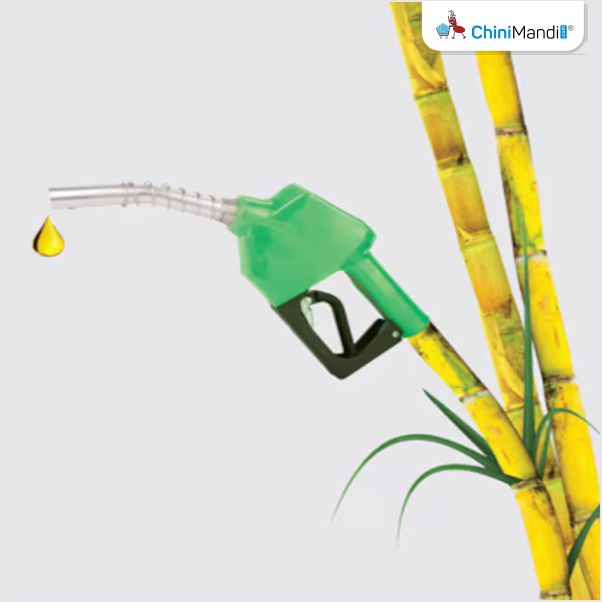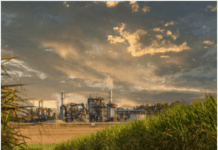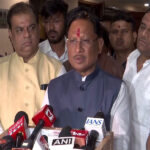On May 18, 2024, renowned scientist and academician Padma Shri Prof. G.D. Yadav, who serves as the Vice-Chancellor of the prestigious Institute of Chemical Technology in Mumbai, delivered a thought-provoking keynote address at a seminar organized by the Deccan Sugar Technology Association (DSTA). The seminar focused on exploring the intricate concepts of “Heat and Mass Balance in Sugar and Allied Industries,” a topic that lies at the heart of the sugar industry’s operations.
During his address, Prof. Yadav shared his visionary insights into the pressing challenges confronting the sugar industry and proposed a series of innovative solutions aimed at enhancing the sector’s sustainability and profitability. His ideas challenged conventional wisdom and sparked a lively discourse among industry stakeholders.
Rethinking Energy Generation: Unlocking the Potential of Bagasse
One of the key issues Prof. Yadav addressed was the traditional approach of generating electricity by burning bagasse, the fibrous residue left after sugarcane is crushed to extract its juice. While this practice has been commonplace in the industry, Prof. Yadav questioned its efficiency and argued that it fails to maximize the economic potential of bagasse.
Instead, he proposed exploring alternative uses for this valuable byproduct, suggesting that bagasse could be utilized to produce high-value chemicals such as furfural, xylitol, and cellulosic ethanol. By repurposing bagasse in this manner, sugar mills could unlock new revenue streams while simultaneously reducing their environmental footprint. This innovative approach not only promises to enhance the industry’s economic returns but also aligns with the principles of sustainable development.
Bio-Refineries: A Transformative Model for Sugar Mills
Drawing inspiration from the petrochemical industry’s approach to refining raw materials into a diverse range of valuable products, Prof. Yadav presented a bold and innovative idea: transforming sugar mills into bio-refineries. Just as petrochemical refineries convert crude oil into various commodities, bio-refineries could diversify their output by processing sugarcane and its byproducts into a variety of high-value products.
This transformative model would enable sugar factories to transcend their traditional role of solely producing sugar and ethanol, empowering them to create a diverse portfolio of valuable commodities from the byproducts generated during the sugar production process. By embracing this approach, the industry could boost its profitability while simultaneously enhancing its sustainability by maximizing resource utilization and minimizing waste.
Bioethanol Production: Addressing Inefficiencies with Innovative Solutions
Prof. Yadav also shed light on the inefficiencies inherent in traditional bioethanol production methods, particularly the high costs associated with fermentation and distillation processes. To tackle this challenge, he proposed an unconventional solution: employing hydrocarbons like kerosene in the distillation process.
This innovative approach could potentially circumvent the need for blending ethanol with petrol, thereby simplifying the production process and reducing associated costs. While this proposed solution may raise eyebrows among some industry experts, Prof. Yadav’s willingness to explore unconventional methods underscores his commitment to driving innovation and efficiency within the sector.
Micro-Resource Management: Optimizing Water, Fertilizer, and Power Consumption
In his pursuit of sustainable practices, Prof. Yadav emphasized the critical importance of precise resource management throughout the sugar production process. He highlighted the need for accurate measurement and optimization of water, fertilizer, and power consumption across all stages of production.
By implementing micro-level adjustments and improvements in resource utilization, the industry can achieve macro-level gains in efficiency and reduce its environmental impact. This holistic approach to resource management not only aligns with the principles of sustainability but also promises to enhance the industry’s competitiveness by reducing operational costs.
Long-Term Sustainability of Bioethanol Blending and the Need for Alternative Fuel Solutions
While acknowledging the current practice of blending bioethanol with petrol, Prof. Yadav expressed concerns about its long-term sustainability. He cautioned that the depletion of petrol reserves by 2050, as projected by some experts, underscores the urgent need for alternative fuel solutions that do not rely on diminishing resources.
This observation highlights the imperative for the sugar industry to proactively explore and develop alternative fuel sources that are sustainable, renewable, and aligned with the principles of a circular economy. By addressing this challenge head-on, the industry can position itself as a pioneering force in the transition towards a more sustainable energy landscape.
Collaborative Innovation: The Path to a Prosperous Future
Throughout his address, Prof. Yadav emphasized the pivotal role of innovation, collaboration, and technological advancement in shaping the future of the sugar industry. He urged stakeholders to embrace international partnerships, knowledge-sharing initiatives, and collaborative research efforts as catalysts for accelerating progress toward a more sustainable sugar industry globally.
By fostering an environment conducive to innovation and cross-border collaboration, the industry can leverage diverse perspectives, expertise, and resources to develop cutting-edge solutions that address the multifaceted challenges it faces. This collaborative approach not only promises to drive progress but also ensures that the benefits of innovation are shared equitably across the global sugar industry.
Diverse Perspectives: A Call for Positive Discussion
While Prof. Yadav’s proposals have sparked debate and discourse among experts in the sugar industry, he stressed the importance of engaging in positive discussions. Whether it’s rethinking bagasse utilization, exploring unconventional approaches like the use of kerosene in bioethanol production, or addressing concerns about long-term sustainability, these dialogues are essential for paving the way toward a brighter future for the industry.
It is through respectful and constructive exchange of ideas that the industry can collectively navigate the challenges it faces and identify viable solutions that strike a balance between economic prosperity and environmental stewardship. By embracing diverse perspectives and fostering open-minded discussions, the sugar industry can unlock its full potential and benefit generations to come.
Concern regarding the use of kerosene for ethanol production:
The proposal to use kerosene in the distillation process for bioethanol production is an unconventional approach that could potentially simplify the process and reduce costs. However, its practicability is subject to further research and evaluation.
Pros:
– Kerosene has a higher boiling point than ethanol, which could make the distillation process more efficient and energy-saving.
– Eliminating the need for blending ethanol with petrol could simplify the production process and reduce costs associated with blending.
Cons:
– The use of a hydrocarbon like kerosene in bioethanol production raises environmental and sustainability concerns, as it could counteract the purpose of using a renewable fuel source.
– The compatibility of kerosene with the existing distillation equipment and processes needs to be thoroughly investigated to ensure feasibility and safety.
– Regulatory and safety considerations may need to be addressed due to the flammable nature of kerosene.
Overall, while the idea is innovative and could potentially offer cost advantages, its practicability hinges on addressing the environmental concerns, ensuring process compatibility, and conducting extensive research and pilot studies to evaluate its viability and scalability.
Regarding setting up bio-refineries for ethanol production:
The concept of transforming sugar mills into bio-refineries is a promising approach that could enhance sustainability and profitability within the sugar industry.
Pros:
– Bio-refineries would enable the diversification of output by producing a range of high-value products from sugarcane and its byproducts, such as furfural, xylitol, and cellulosic ethanol.
– This model aligns with the principles of a circular economy by maximizing resource utilization and minimizing waste.
– Diversification can reduce the industry’s reliance on a single product (sugar) and provide alternative revenue streams, enhancing overall profitability.
Cons:
– Transitioning to a bio-refinery model would require significant capital investment in new infrastructure, equipment, and technology.
– Existing sugar mills may need to undergo extensive retrofitting or renovation to accommodate the new processes and equipment required for a bio-refinery.
– Skilled personnel and specialized training would be required to operate and manage the complex processes involved in a bio-refinery.
– Supply chain and logistics considerations need to be addressed for the effective distribution and marketing of the diversified product portfolio.
While the establishment of bio-refineries presents challenges in terms of capital investment and operational complexities, the potential benefits of increased sustainability, resource efficiency, and profitability make it a promising avenue for the sugar industry to explore. Successful implementation would likely require a phased approach, pilot projects, and collaboration between industry stakeholders, researchers, and policymakers to overcome the technical, financial, and logistical hurdles.
In conclusion, Prof. G.D. Yadav’s visionary address at the DSTA seminar has ignited a crucial conversation about the future of the sugar industry. His bold ideas and proposals, while thought-provoking and potentially divisive, underscore the urgent need for innovation, sustainability, and collaboration within the sector. As the industry grapples with the challenges of resource scarcity, environmental concerns, and evolving market dynamics, Dr. Yadav’s insights offer a roadmap for a more prosperous and responsible future – one that harmonizes economic growth with environmental stewardship.
Disclaimer: The views and opinions expressed in the article by Dilip Patil, Managing Director of Samarth SSK Ltd., are solely his own.

















